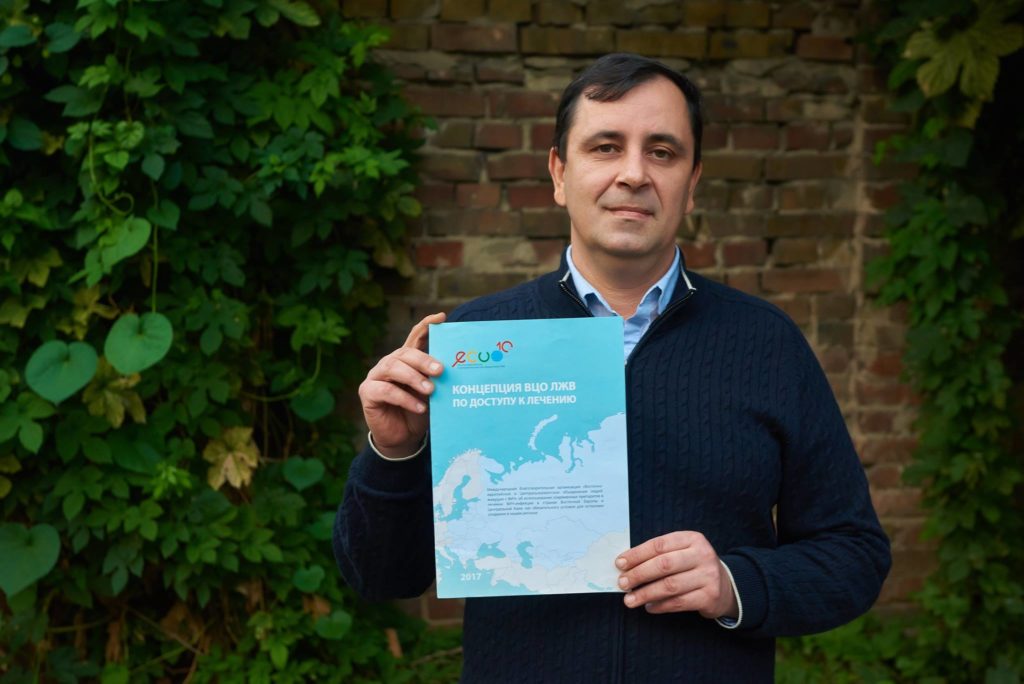On September 6, in Poland, the ECUO held a working meeting jointly with the international experts, representatives of governmental institutions and activists of PLHIV communities, to discuss the new concept of access to innovative treatment.

You can review the concept here.
Without exaggeration, it is a landmark meeting that took place on the edge of two Europes: East and West.
In West Europe, the epidemic is brought under control already, so HIV-infected people have an opportunity to be treated with the newest innovative drugs with least side effects and best perceptibility of the treatment by a patient. While East Europe and Central Asia is the only region in the world with growing pace of HIV/AIDS epidemics, and the treatment quality in our countries leaves much to be desired.
The ECUO, as all progressive international organizations, welcomes the strategy “test and treat”: if a virus is revealed, a person gets treatment aimed at his/her well-being and ending HIV-infection development and spread in the body. At this point, it is highly important to treat using exactly those drugs that bring least side effects! After all, if a newly diagnosed HIV-positive person who felt pretty good starts to receive treatment that worsens his/her health, let’s face the great likelihood that he/she quits the treatment, and will further spread the resistance to a particular HIV drug.
During the ECUO working meeting in Poland, we discussed our advocacy concept on access to HIV treatment with innovative drugs as a compulsory condition for stopping the epidemic in our region.
When developing the concept, we relied primarily on the newest recommendations of The World Health Organization, published in July 2017, as well as on the recent research of the leading European and American scientific and medical centers that recommend integrase inhibitors as preferred drugs in the first line treatment of HIV-infected patients.
At our meeting, we heard WHO position, which currently recommends using integrase inhibitors, in particular, drug “Dolutegravir” as the first-choice drug for the countries with middle and lower middle income.
It is already produced by generic companies and is commensurate in price with the drug recommended earlier for the treatment that brought heavy side effects.
We insist that life quality of the patient is the most important condition to end HIV/AIDS epidemic!
We cannot reach UNIADS strategy 90-90-90 (90% identified HIV cases, 90% on treatment, 90% receiving treatment with zero viral load) if the life quality of the patients deteriorates, and they drop treatment. In this case, the global target to combat HIV/AIDS by 2030 looks illusory.
The work meeting took place within “Partnership for equitable access to HIV care continuum,” which we implement with the comprehensive support of the Global Fund to Fight AIDS, Tuberculosis and Malaria.
The discussion around the ECUO concept on the improvement of the life quality of people living with HIV was participated by the leading experts, representatives of international and national organizations that lead HIV/AIDS response in East Europe and Central Asia. I am thankful to the representatives of the the Global Fund to Fight AIDS, Tuberculosis and Malaria, The World Health Organization, UNIADS, Doctors without borders, Global Network of People living with HIV (GNP+), Positive Voice, Center for Health Policies and Studies (PAS Center), the Eurasian Coalition on Male Health (ECOM), The European AIDS Treatment Group (EATG).
Also, we are thankful for the participation of the Medical Patent Pool that delivered a wonderful presentation about those drugs with transferred license to the generic companies and respective countries coverage; it also provided information about plans of licenses transfer to the newest drugs, produced by brands.
The pricing and capability of cost reduction for ARVs were of the utmost importance for the meeting participants
Thus, we managed to present our plans, get the feedback, and, shortly, we will present a specific action plan for the use of innovative drugs for the HIV treatment in our region.
Countries of Eastern Europe and Central Asia are Europe! And in Europe, there should be neither double standards in the treatment nor discrimination of HIV-positive people in access to the entire care continuum!
11.09.2017
